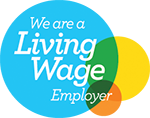Posted by Sharon Elliott on 1 December 2016
 Tony Lennon, research officer. Pic: Mark
Tony Lennon, research officer. Pic: Mark
Dimmock
The Chancellor announced a wide range of tax changes in last week's Autumn Statement - some were predictable thanks to leaks or various consultations in the last year, while others were unexpected. Tony Lennon, BECTU's research officer, explores the effect of the changes on BECTU members.
Flat-rate VAT scheme
Probably the most significant change for some of our freelance members who are VAT-registered. The current sliding scale of payment rates, which vary according to the sector your business operates in, will be replaced by a fixed 16.5%, and the scheme will be closed to anyone defined as a "limited cost trader". This will exclude anyone whose input VAT is less than at least £1,000 a year, and at least 2% of their turnover. VAT payments on food, drink, vehicles, fuel, and capital purchases, will be excluded from this total, which, combined with the £1,000 threshold, will probably force many of our members out of the flat-rate scheme, leaving them with the option of full-blown output minus input VAT declaration, or de-registering.
The government claims that the change is being made to tackle "aggressive abuse" of the flat-rate scheme, which is grossly unfair since businesses using it are behaving completely legally, although there are situations where flat-rate payments to HMRC are lower than those that would be generated by an output/input calculation. However, widespread de-registration will cut off VAT payments from freelance members who are paying in the region of 13.5% under the flat-rate scheme. The change takes effect in April 2017.
Class 2 NIC abolished
As flagged in advance, Class 2 National Insurance Contributions will be scrapped from April 2018, leaving freelancers in a position where they will have to hit the Class 4 NIC Small Profit Threshold (£6,025 in 2017/18) to earn a qualifying year for contributory benefits like the State Pension. The Autumn Statement has confirmed that the only means by which they can top up earnings below this figure will be Class 3 NIC, at £14.25 a week in 2017/18, as opposed to earning credits with Class 2 NIC at £2.85 a week.
Personal service companies in the public sector
In addition to the transfer of IR35 tax liability from PSCs to engagers in the public sector next April, the Chancellor now plans to scrap the 5% tax-free deduction that workers in PSC caught by IR35 are allowed to make from their "deemed employment payment" in acknowledgement that although they have to pay PAYE and employee's NIC, there are nevertheless costs associated with running a PSC which have to be paid. Today's announcement was made on the erroneous grounds that the 5% was a reflection of the cost incurred in working out if the PSC was caught by IR35.
Disguised remuneration tax extended to self-employed
A drive against employees receiving remuneration through tax-free vehicles like off-shore trusts in Budget 2016 will be extended to self-employed workers, probably from April 2017. If the employee model is used, this will entail a ban on the payment being treated as a business cost unless tax is paid on it. This is unlikely to be a big issue for BECTU freelancers.
Making Tax Digital
The government response to comments (mostly unfavourable) on its plan to give small businesses, including all our freelancers, a digital tax account which needs quarterly posting of all transactions, is now promised in January 2017. All organisations representing the self-employed, including BECTU and Equity, have forcefully criticised the bureaucratic load this is going to present to most of them.
Employees' National Living Wage
The so-called NLW will be increased in April 2017 to £7.50 an hour, at which point annual increases will be synchronised with the National Minimum Wage, which from next April will be: £7.05 for 21-24 year olds, £5.60 for 18-20 year olds, £4.05 for 16-17, and £3.50 for apprentices.
NIC threshold alignment
National Insurance Primary and Secondary Thresholds will be aligned next April at £157, meaning that employers start paying NIC at the same point as employees. A tidying-up exercise really.
More NIC on redundancy pay over £30,000
Employer's NIC of 13.8% will be payable on the taxable portion of any redundancy payment over £30,000, the point at which the employee already pays PAYE and NIC.
Salary Sacrifice restricted
From April 2017 new Salary Sacrifice Schemes, under which employees can waive a portion of their pay in order to receive various tax-free benefits, will be restricted to pensions, child-care, cycle to work, and ultra-low emission vehicles. In the government's view some employers had been rather over-imaginative about what could be provided under these schemes, and from April 2018 some benefits in existing schemes, like white goods, will be excluded, and cars, accommodation, and school fees will no longer be covered from April 2021. It's eventually worth £260m to the Treasury, so there's obviously a lot of it going on.
Employee business expenses
A review of expenses for employees was announced in the Statement. There are no terms of reference yet, except that income tax relief will be examined, and a call for evidence will be made in April 2017. The last review of employee travel and subsistence expenses led to some significant changes, and this may be the same.
Pension Money Purchase Annual Allowance
This is a limit to the amount that an over-55 year old can put into a defined-contribution pension scheme, once they have taken advantage of their right, since 2015, to draw down money at their marginal rate of tax, rather than rates up to 55% previously. The MPAA will be cut from £10,000 a year to £4,000 to reduce the tax lost by DC members recycling cash through their pension schemes to gain a tax advantage.
There are a number of company tax changes that could affect some PSC members:
Corporation Tax
Phillip Hammond confirmed that CT will reduce to 17% by 2020, from its current rate of 20%. This will give the UK one of the lowest Corporation Tax rates in the OECD.
Carried losses
The amount of loss that companies can carry from one year to the next to offset against tax will be restricted to 50% of the total loss in the year concerned. This is unlikely to affect many BECTU members in Personal Service Companies, but may be relevant to those who make large capital purchases, and experience significant depreciation.
Employee Shareholder tax relief
This new category of worker, introduced in 2013, allowed workers to sell some employment rights, like redundancy pay, in return for at least £2,000 worth of shares in the enterprise they were working for. The shares are, up to a limit, free from capital gains tax, and although the new status was aimed at thrusting new start-up companies, it was used much more by shareholders of family companies to reduce tax bills by selling and buying shares between themselves. From December 2016 the tax benefits for new Employee Shareholders will be scrapped.
Two other relevant changes:
Insurance Premium Tax
This tax on all insurance policies will rise from 10% to 12% in June 2017, and this will no doubt be reflected in the premium we charge for our Public Liability Insurance to members. For some insurance purchasers, the increase will be offset by the anticipated reduction in premiums due to the government's plans to limit claims for whiplash, which will in future be handled in the small claims track below £5,000, with the possibility of all PI claims below this level being done without legal representation.
Museums and Galleries tax relief
In a move welcomed by the heritage industry, the tax break for exhibitions will be extended from touring shows to permanent exhibitions from April 2017, with a sunset date of 2022 if the relief is not renewed by government.
Tony Lennon, Research Officer, 01 December 2016.
Comments
Sorry, comments are not currently enabled for this post.

